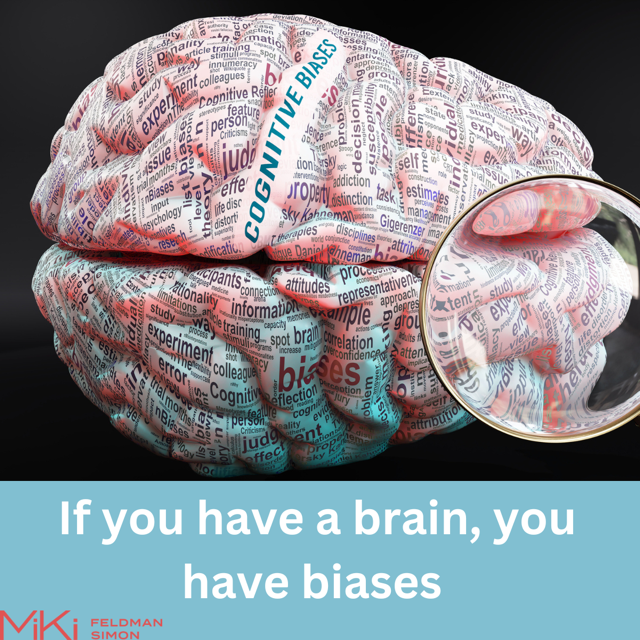Bias helps our minds quickly make sense of the world by categorizing, simplifying complex information, reducing mental effort, and enabling quick judgments. Our brains unconsciously make these judgments. In early prehistory, this thinking was crucial for survival. For example, seeing a tiger instinctively signals danger, prompting a swift reaction. This cautiousness is hard-wired into our brains through evolution to protect us.
Our “Lizard brain” helps us avoid danger and react quickly, which is why we all have biases.
If you have a brain, you have biases.
Understanding and acknowledging your biases is crucial for personal growth and self-awareness. It helps you understand your predispositions, enabling more intentional decision-making. This awareness improves communication, fosters empathy, and reduces unconscious discrimination, ensuring fair and equitable decision-making.
Unconscious biases are formed due to cultural, social, and environmental influences, as well as personal experiences and upbringing.
- Cultural and Societal Norms: Norms shape our beliefs and attitudes. Values learned from institutions like the Church can influence these biases.
- Personal Experiences: Experiences with individuals shape our attitudes toward groups. Negative or positive experiences can lead to biases.
- Media and Popular Culture: Media reinforces stereotypes, making biases harder to change.
- Upbringing and Education: Our upbringing shapes our biases. Growing up in environments where certain groups are portrayed negatively leads to internalized biases.
My upbringing has had a huge impact on me. Growing up with a chauvinistic father, I was mortified when I started working on my implicit biases. Despite fighting for women’s rights and founding IamBackatWork to support women, I found I still had gender biases from my upbringing. I noticed unconscious biases—thinking the bad driver must be a woman or expecting the CTO to be a man. It was unsettling to realize these biases were influencing me.
I am thankful I did and am continuing to do this work to truly stand for what I believe in.
Next time you make a snap judgment, pause. Slow down, take a step back, and consider your biases. Be aware of how your thinking impacts your actions.
Question your first impressions and extreme reactions to people.
If you immediately like or dislike someone, ask yourself—what influenced your judgment?
What biases could be influencing your reactions?
